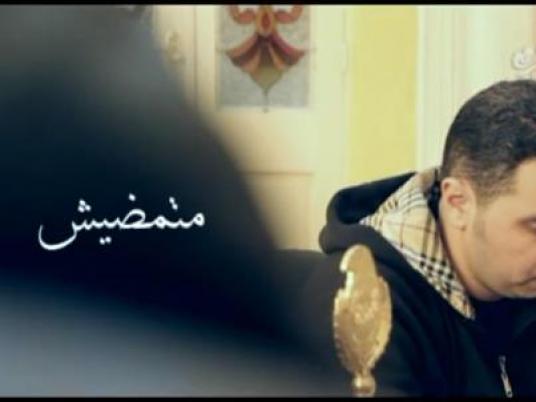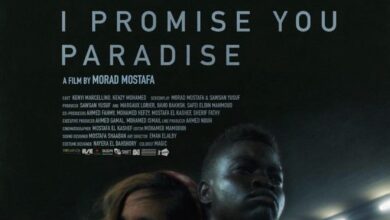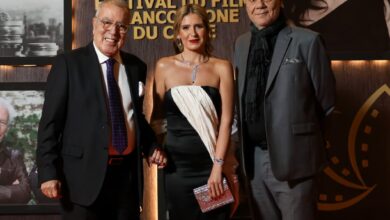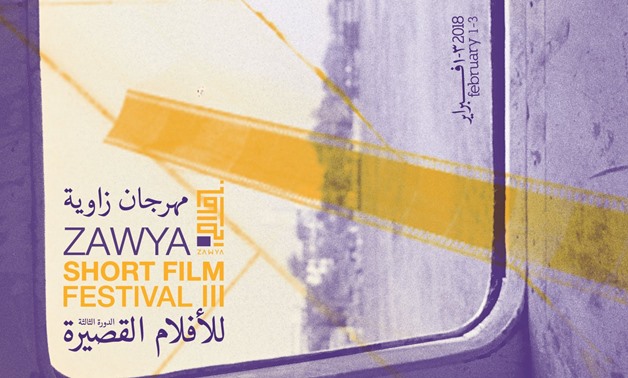
ALEXANDRIA — One of the most interesting factors in short filmmaking is the need for succinctness, getting straight to the point, paring away all that is unnecessary. But the short Egyptian films shown as part of the 28th Alexandria Film Festival on Saturday were not interesting, nor did they take on either of the two main roles that make short films so important: because shorts are more easily made than features, they have more potential for formal and technical innovation and for starting filmmakers’ careers, both of which revitalize the industry.
Three of the Egyptian shorts dealt with revolution. One, “Words” (Hisham Essam, 15 min), was suitably full of dialogue. It should have been a radio play — the dubbing, set and lighting were so clumsy that they constituted a distraction from the impassioned dialogue about the Syrian uprising (which ended on a happy note with the idea of thinking about the future).
“Don’t Sign” (Ahmed A. Fotoh, 4 min) was also emotive and didactic: A man makes the right choice between corruption and his compassion for the martyrs of Egypt’s own uprising. “Bizarre Remnants” (Ahmed Sultan, 4 min) had a similar set up to “Words” and “Don’t Sign”: two characters in an office, one of whom is played by an actor who appears in all three of these films. In “Bizarre Remnants” he is a former National Democratic Party member being coached on how to get back into Parliament after the uprising.
“A Boy and a Girl” (Hala Nada, 12 min) was at least a good-looking film, well-lit and styled old-fashioned, but it was safe and unmemorable. “In Pajamas” (Maysara al-Nagar, 2:30 min), in which a man pretends to be a bird in the street, was memorable for being short and mysterious and the only film that was not a wannabe soap opera. “I Am Human” (Mohamed Mahmoud, 6 min) was incomprehensible and involved a mannequin. “Will be Solved” (Ahmed Tawfeek, 25 min), a tale about a boy with divorced parents, was probably the worst of the bunch, mainly because of its length. But it was also full of contrived symbolism, unnecessary special effects and unintended laughs. The final film of the eight programmed was not shown.
The problem was not so much that the films were not great. It was more to do with the fact that they appeared to be student films and were extremely similar to each other. Most of the shorts screened yesterday were produced by an entity called Fekra (idea), connected to academic Mona al-Sabban. They were the only shorts being screened as part of this international festival, and were not billed as student films.
On the way out of the chaotic screening, this reporter bumped into a familiar face who seemed to be working for the festival. Well aware of the fact that there are good filmmakers making short films in Egypt, this reporter asked him about what we had just seen. “You know a lot of young directors — do any of them submit work to this festival?” he asked in response.
Afterward we called Cairene short filmmaker and scriptwriter Yasser Naeim, who has made such shorts as the documentary “Improvisation” (2010). We also asked various people at an event at Al-Cabina, an Alexandria cultural hub that runs a strong film program, about the festival. They related a tale of mistrust and corruption, an idea that the Alexandria Film Festival is so unambitious and disorganized that it cannot actually be seen as a “real festival.”
Naeim claimed that it does not welcome young people’s involvement and that good filmmakers no longer want to be involved. He said that until a few years ago the festival had a use as the only place to see world cinema in Egypt — commercial cinemas show largely only Egyptian, American and occasionally Indian films — but now in the era of the Internet people can download films from anywhere and young people organize screenings. The people at Al-Cabina said that the festival made no attempt to reach out to the arts and filmmaking scene in Alexandria.
Set up in the 1980s by the Egyptian Cinema Writers and Critics Association and funded by the Culture Ministry, the festival has suffered from a reputation of disorganization, corruption and an over-emphasis on the opening night ever since. It seems that, though this is the second edition after the 2011 uprising, little has changed.
It is a shame that the festival’s selection of shorts was not made according to merit. One only needs to have visited the Arab Shorts festival organized by the Goethe Institute in Cairo over the last couple of years to know that there are brilliant short films around. The theme of this year’s festival is “human dignity,” but it is difficult to be convinced that the organizers are taking the theme seriously if they are content to show films of such a low standard.




